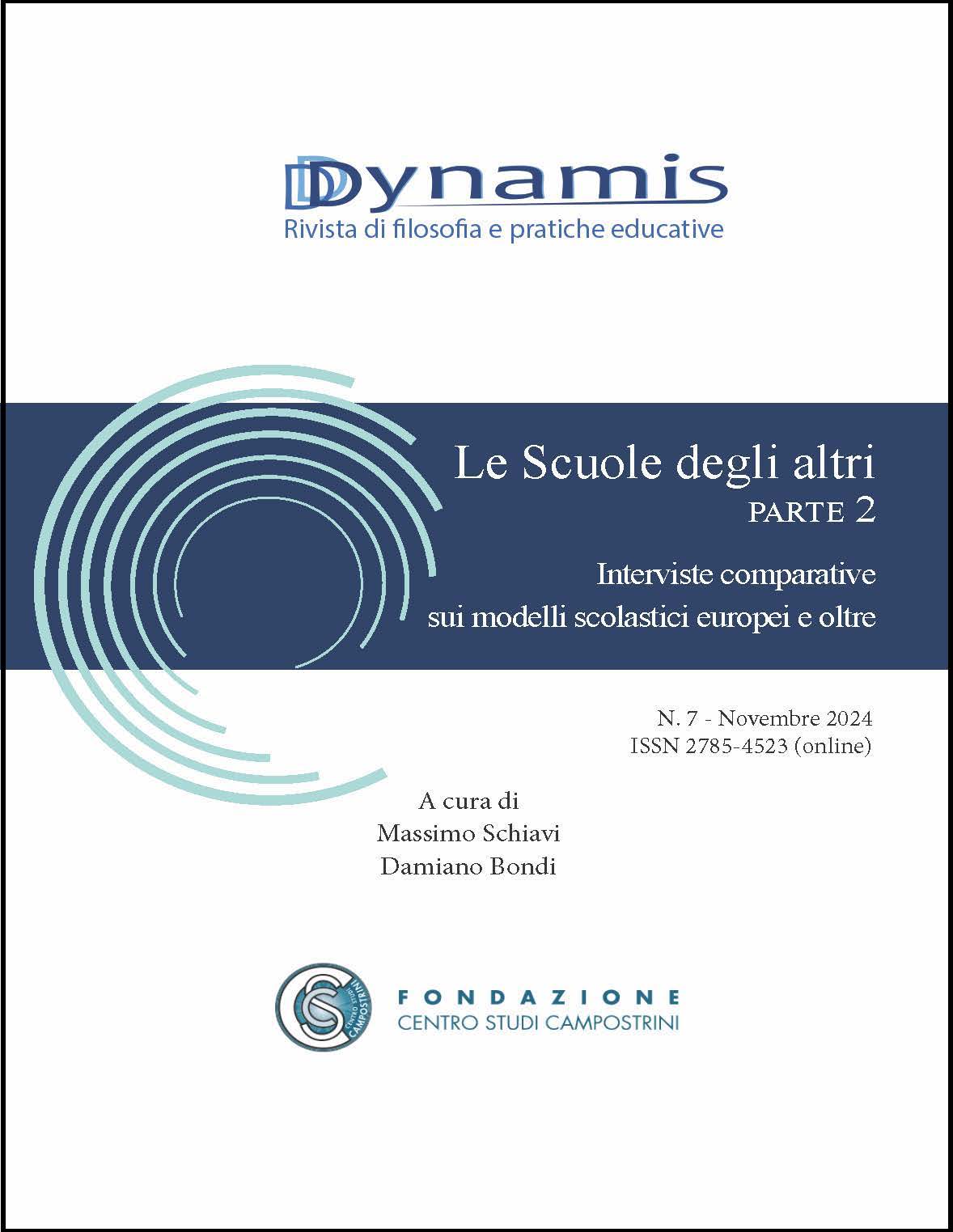Il sistema scolastico in Grecia
DOI:
https://doi.org/10.53163/dyn.v7i7.243Parole chiave:
principi pedagogici, educazione inclusiva, insegnanti, grecia, scuolaAbstract
This paper presents a comprehensive analysis of the Greek educational system, highlighting its structure, guiding pedagogical principles, teacher training processes, evaluation methods, and key characteristics such as inclusivity, interdisciplinarity, and digital innovation. The Greek education system is detailed from early childhood education to post-secondary education, emphasizing the influence of historical and cultural heritage on its pedagogical approaches. The process of becoming a teacher in Greece, including academic qualifications, professional training, and the societal role of teachers, is discussed. Evaluation methods at various educational stages and criteria used to assess students' skills and achievements are outlined. Additionally, the paper identifies strengths such as cultural heritage and inclusivity, as well as challenges like resource allocation and educational equity. The analysis underscores the need for continuous adaptation and innovation to meet the demands of the 21st century.
##submission.downloads##
Pubblicato
Come citare
Fascicolo
Sezione
Licenza
Copyright (c) 2024 Antonis Papaoikonomou

Questo lavoro è fornito con la licenza Creative Commons Attribuzione - Non commerciale - Non opere derivate 4.0 Internazionale.




